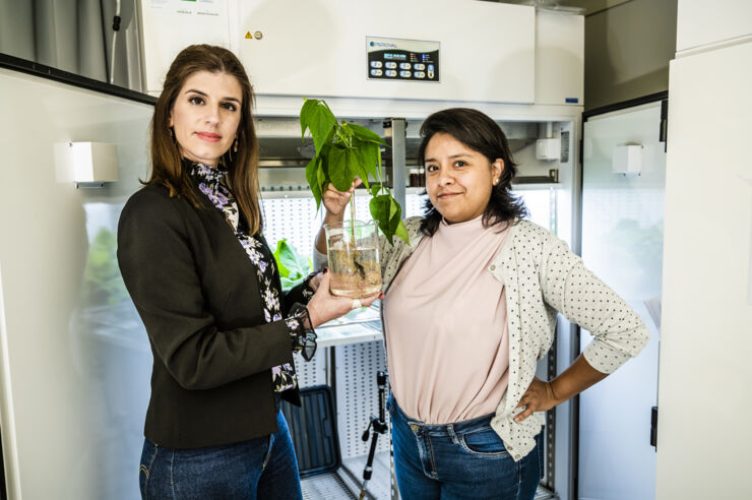In the current research, WWSC member Eleni Stavrinidou and her group has been working with bean sprouts that been watered with an oligomer. They have then been able to show that the roots become conductive for at least four weeks, with a conductivity in the mature roots of about 10 S/cm.
– Previously, we have worked with cut flowers that can take up and organize leading polymers and oligomers. The downside is that cut flowers only survive a few days and also stops growing, says Eleni to liu.se.
The bean plants did instead continue to thrive and continued to grow – and even produced beans.
The research can have impact the development of new functional materials and biocomposites and the researchers have so far successfully investigated a root-based supercapacitor.
– Supercapacitors based on conducting polymers and cellulose are an eco-friendly alternative for energy storage that is both cheap and scalable, says Eleni Stavrinidou.
The results have been published in the scientific journal Material Horizons.
Read the published scientific article: Biohybrid plants with electronic roots via in-vivo polymerization of conjugated oligomers, Daniela Parker, Yohann Daguerre, Gwennael Dufil, Daniele Mantione, Eduardo Solano, Eric Cloutet, Georges Hadziioannou, Torgny Näsholm, Magnus Berggren, Eleni Pavlopoulou, Eleni Stavrinidou. Materials Horizons 2021, DOI 10.1039/D1MH01423D
Read more about Eleni Stavrinidou’s research
Eleni Stavrinidou





